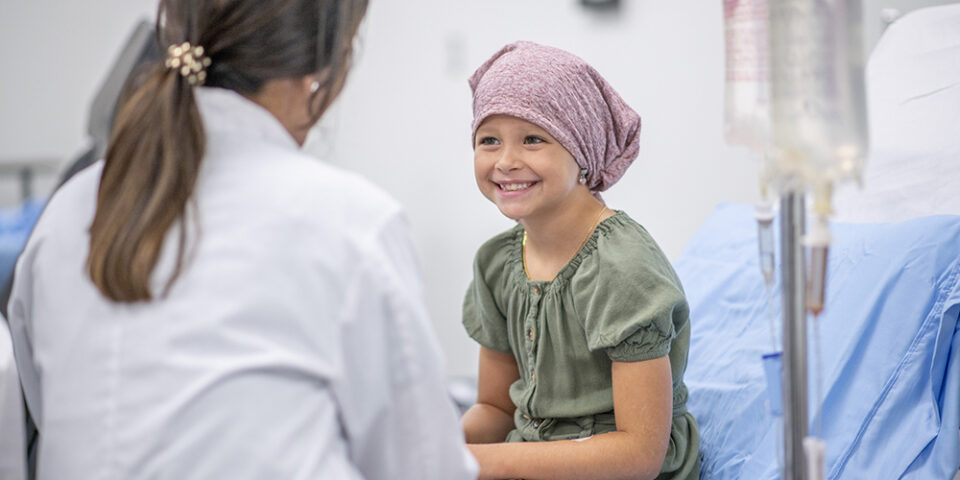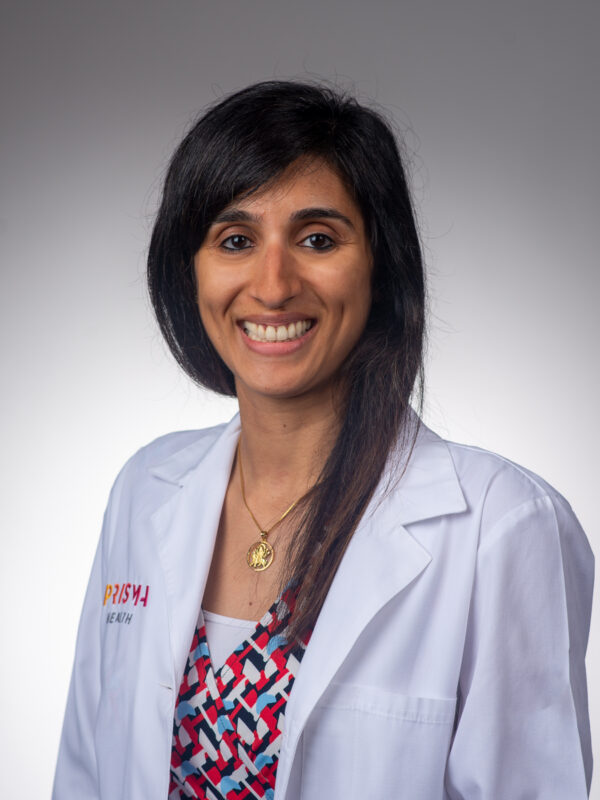How is childhood cancer different from adult cancer?
Cancer can affect people of all ages, but cancer in children is very different than it is in adults. From the types of cancers that affect kids to how the cancers respond to treatment, there are a lot of reasons why children’s cancer care is unique.
Pediatric oncologist Chandni Dargan, MD, explained the main ways childhood cancer is different from adult cancer.
“Cancer is much more common in adults than in children,” she said.
The types of cancer children are more likely to develop are different as well. According to the National Cancer Institute, the most common cancers in adults are breast, lung, prostate and colorectal cancers, which make up 50% of all new cancer cases in the U.S.
“Some of the most common pediatric cancers occur less frequently in adults,” Dr. Dargan said. “For example, leukemia, lymphoma and brain and central nervous system tumors account for more than half of pediatric cancers and less than 15% of adult cancers.”
Not only are there differences in where in the body cancers occur, there are differences in how rapidly pediatric and adult cancers grow and spread. Pediatric cancers are typically more aggressive than adult cancers.
There are also genetic differences between pediatric and adult cancers. Childhood cancer genomes tend to have fewer genetic mutations than adult cancers.
“The causes of most pediatric cancers are also unknown,” Dr. Dargan said. “Unlike many adult cancers, pediatric cancers are not due to lifestyle choices or environmental risk factors such as smoking and diet.”
How is treatment different between pediatric and adult cancer?
“Treatment for pediatric cancer is typically more intense,” Dr. Dargan said. “And with some exceptions, pediatric cancers tend to respond better to treatment.”
However, children are more likely to experience side effects from treatment. Cancer and its treatment affect growing bodies differently than adult bodies. Many treatments also cause long-term effects, so children require follow-up for many years after their treatment is completed – often for the rest of their lives.
What are some unique challenges for children who are battling cancer?
“Along with navigating school, extracurricular activities, friendships and other relationships, children are figuring out who they are as a person,” Dr. Dargan said. “Balancing this while being treated for cancer is extremely challenging.”
Most patients experience changes to their appearance while being treated for cancer, such as hair loss, which can be even more difficult for children who are dealing with the pressure of wanting to fit in and be like everyone else. Many children battling cancer are also unable to attend school or participate in sports and activities because of restrictions regarding physical activity and social gatherings.
This can feel daunting, but Dr. Dargan said parents can play a vital role in helping a child overcome these challenges.
“Support and advocate for your child,” she said. “Kids may not always feel comfortable or be able to express their wants and needs. These challenges may also become frustrating for children, so it helps to be patient, create proper environments and allow them to express themselves comfortably.”
Get kid-friendly care
Our pediatric experts can help your kids and teens be their healthiest.
Find a Pediatric Doctor

